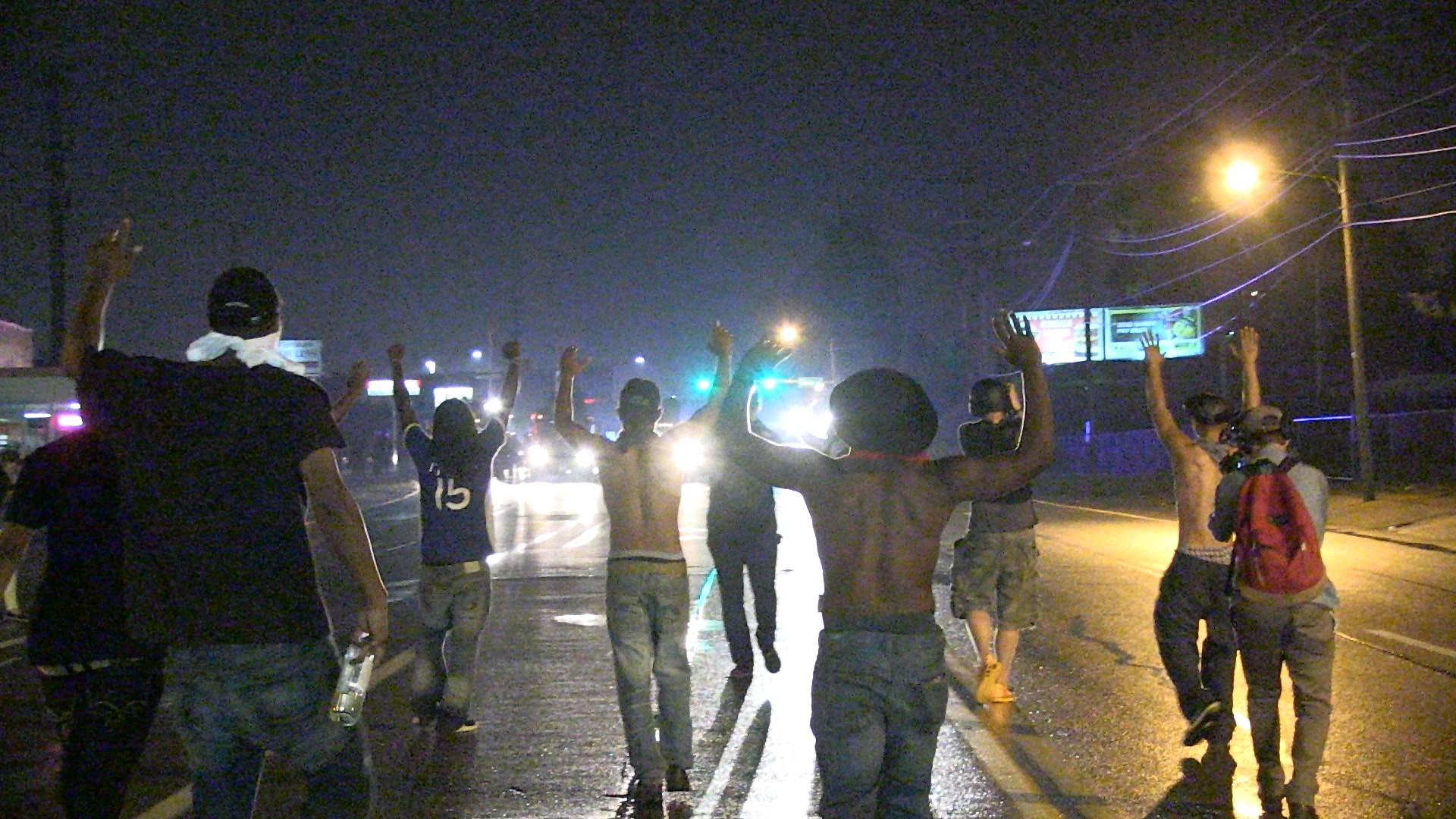Just minutes after shooting and killing an unarmed black man in his own backyard last week, Sacramento police officers muted their body cameras — and the department can’t explain why.“A reminder is that we are still learning as we go,” Sgt. Vance Chandler, a public information officer for the Sacramento Police Department, told VICE News. “We’ve had the body-worn cameras for less than a year.”Stephon Clark, 22, was in his grandmother’s backyard on March 18 when two Sacramento police officers shot at him 20 times. The officers had followed Clark to the house, where he also lived, after one of his neighbors placed a 911 call reporting a man in a hoodie breaking into cars.Initially, police thought Clark had a gun. Then, the department said he had a “toolbar.” He was only carrying a cell phone.About six minutes after the officers shot and killed Clark and backup arrived, one of the officers said, “hey, mute,” body camera footage released by the department shows. “Hey, you guys good?” the officer followed-up before the audio stops. The video, however, continues for about two more minutes. The officers can be seen speaking to each other and at least one civilian before the footage ends.“We don’t know why they muted the body-worn camera, and it is something that we’ll be looking at,” Chandler said.During training, the Sacramento Police Department tells officers they have the opportunity to mute their body cameras in certain scenarios, Chandler said. But the department doesn’t have an official policy on the subject.No state or federal laws exist regarding the use of body cameras, let alone muting them. But Chief Chris Burbank, the Director of Law Enforcement Engagement with The Center for Policing Equity, had some ideas why an officer might do that.“An officer, when they’re involved in any use of force, is in violation of the law in essence,” said Burbank, who worked as the chief of police in Utah for 26 years.Even as public servants, police officers maintain their Fifth Amendment protection against self-incrimination, according to Burbank. They also maintain their miranda rights, including the right to an attorney, just as a private citizen would.“If it [the footage] were allowed to be released, it could be a situation in which you cannot use in court because it is compelled,” Burbank said.It’s more common for police departments to implement specific policies about deactivating body cameras entirely, rather than muting them, according to experts. But turning them off has resulted in officers being accused of planting evidence — on multiple occasions. It’s unclear though whether deactivating body cameras and muting them should be considered different enough to designate their own policies and procedures. The body camera footage of Clark’s death, for example, is dark and shaky; the audio is arguably more valuable.“To me, if that hadn’t been on audio that could have been problematic,” Myers said.Burbank, however, isn’t so sure.“I can’t figure out why you would mute the video because it is so important,” he said. “The audio is often times more compelling than the video because video can be very limited.”Departments’ different policies on the issue can also make analyzing the decision to mute body cameras frustrating and difficult for the public and police alike.“We cannot get on the same page,” Burbank said. “So you have policy that is all over the map in this area, and so it’s very inconsistent.”For example, the San Francisco police department, just a couple hours east of Sacramento, has been working through its policies about when it’s appropriate for officers to mute their body cameras for months. The Sacramento Police Department appears ready to have the same discussion."Muting is one of those things that we have to take a look at," Sacramento Police Chief Daniel Hahn, the city’s first black police chief, told CNN affiliate KCRA. "Any time there is muting on this camera, it builds suspicion — as it has in this case. And that is not healthy for us in our relationship with our community."The mayor of Sacramento agreed.“I think it's a policy we should look at very carefully and perhaps change entirely,” Mayor Darrell Steinberg said during a news conference last week.Cover image: Compilation of screenshots from body camera footage released by the Sacramento Police Department.
Advertisement
Advertisement
The Sacramento Police Department does have a policy about activating officers’ body cameras, which describes the few instances where it’s appropriate to turn a body-worn camera off. These instances include having a confidential conversation, saving battery life, or a witness or victim refusing to give a statement if they’re recorded. There’s also distinctions in the policy regarding the officer’s judgment, like if they believe a recording would interfere with an investigation somehow.The officers also didn’t mute or turn their cameras off during the shooting, as Richard Myers, the executive director of the Major Cities Chiefs Association, pointed out. They waited until Clark was pronounced dead and backup arrived.“I can’t figure out why you would mute the video because it is so important."
Advertisement
